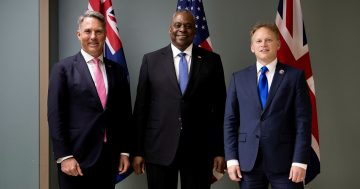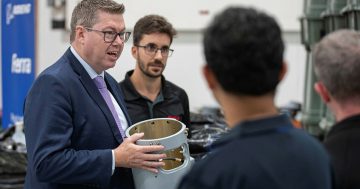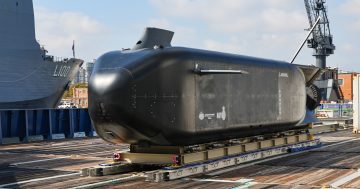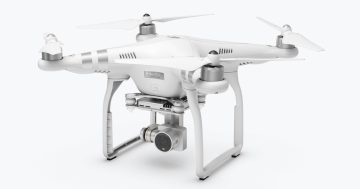
Aspen Medical chief growth officer John Kelly told Region that it can sometimes be easier for Australian companies to land contracts overseas than in their own country. Photo: Aspen Medical.
While much of the focus lately has rightly been on the development of sovereign industry capabilities such as manufacturing, final assembly, and the development of advanced technologies, the all-important services sector has seemingly been left in the wake and rarely receives the same level of political and contractual attention.
The government’s ambitious guided weapons enterprise (GWEO) seeks to reduce Australia’s almost-total dependence on foreign suppliers and long-distance supply chains for its precision weapons, while at the same time developing sovereign technologies and new manufacturing opportunities.
Similarly, government-subsidised continuous shipbuilding programs in Adelaide (Osborne) and Western Australia (Henderson) will ensure a constant stream of new vessels, thus guaranteeing Australia a sovereign workforce and shipbuilding capability over many decades.
But just like these high-tech manufacturing and integration industries, the services sector also has developed and grown sovereign Australian capabilities.
The services sector accounts for nearly two-thirds of Australia’s gross domestic product (GDP) and employs more than 80 per cent of the nation’s workforce. At face value, these numbers alone show that the sector has a vital role to play in Australia’s sovereign industrial capabilities and that it should be recognised as such.
Aspen Medical chief growth officer John Kelly told Region that it can sometimes be easier for Australian companies to secure contracts overseas than in their own country.
“What we saw was that it was easier to get a contract in the US than it was in Australia,” Mr Kelly said.
“When we researched it, there were very clear ways to enter what is a tough [US] market in defence as a small or medium sized business.
“We just saw that there were so many different ways in which these countries had supported small business and the value that provides to local economies.
“But when we look at the Australian procurement rules, especially for services tenders, there’s really not a big emphasis on Australian Industry Content [AIC]. It can be easy to be overlooked because AIC is just so minimal in the procurement guidelines.”
Mr Kelly is certainly not the first industry executive to note that “Australian Industry Content” appears more in ministerial talking points than it does in actual tender documents, although he did say there appears to be a greater emphasis on more tangible capabilities.
“We’ve got a loose group of a few other Australian services companies who we talk to quite often, and they see it in the same way,” he said.
“There is always going to be a bigger AIC emphasis on manufacturing because you feel like you can stand next to it.
“And there is a very good reason to support sovereign manufacturing because, if you’re in a crisis, you need that supply chain to be close by.
“With services, it’s harder to see the tangible benefit to it, so it’s harder to stand there and show where the money is going.
“Even in the medical field, the emphasis has been towards advanced manufacturing, especially there’s stuff’ you can point at,” he added.
The major benefit of preferencing Australian companies, or at least a high degree of AIC in services tenders, is that the majority of the money stays in-country. This high-value job creation is a circular benefit to the economy. Businesses and employees pay tax in Australia, and that goes straight to the gross domestic product, which improves the lives of all Australians. But because services are so intangible, they are often overlooked.
The Australian Government’s moves to cement its place in the dual-pillared AUKUS construct only add impetus to the need to develop a wider sovereign industry capability base. AUKUS seeks to share technology among the three partner nations, but this won’t just happen in one direction.
The breaking down of technology-sharing barriers and bringing Australia ”inside the tent” means many unique high-end technologies, capabilities and services that have been developed and are in service in Australia will also be more accessible and likely of value to our AUKUS partners and other prospective customers in the future.





















